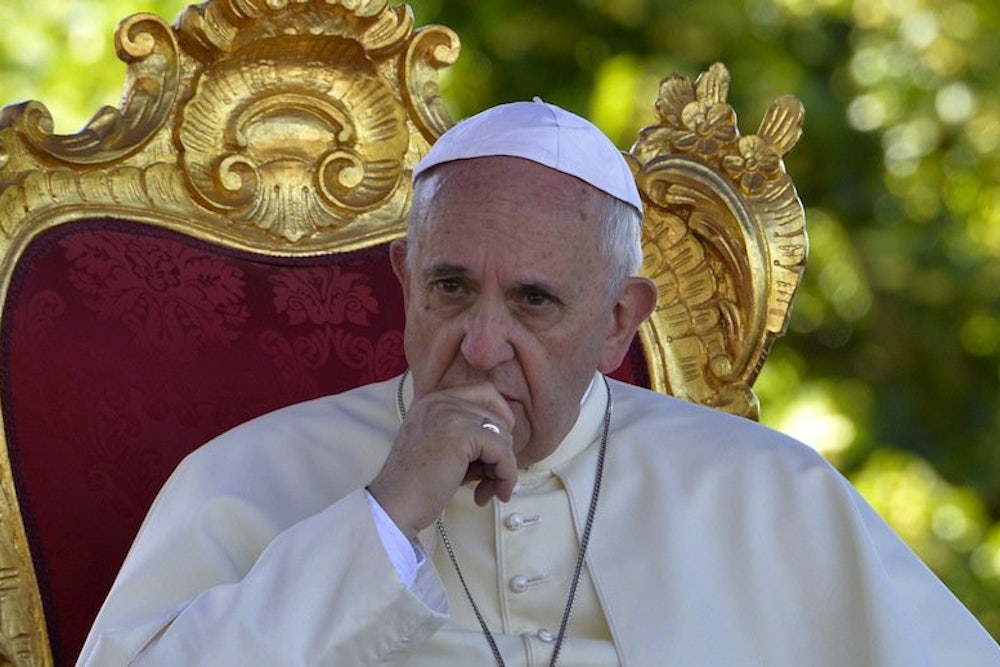On Thursday, House Speaker John Boehner once again toed the GOP line on climate change, saying, "Certainly we've had changes in our climate. I'll let the scientists debate the sources in their opinion of that change." Pope Francis disagrees. Only hours earlier, he said mankind is "mostly" responsible for climate change, and that we have "slapped nature in the face."
“Thanks be to God that today there are voices, so many people who are speaking out about it,” he said while visiting the Philippines, which suffered from a devastating typhoon in 2013.
The Pope has become one of those powerful voices trying to drown out misinformation from the science-denier caucus. He's expected to release an encyclical on ecology this summer, which may influence the next round of international climate change negotiations in Paris. And he's scheduled to speak at the United Nations General Assembly in September.
Speeches are fine, and may help nudge some in the right direction. But the Pope has the chance to do more than simply make speeches. If the Vatican really wanted to make a statement, it would dump its fossil fuel investments.
The idea would be popular among many Catholics. “Catholics are experiencing a moment of rising consciousness about our moral imperatives to care for the environment, which is God’s creation,” Stephen Schneck, a director at the Catholic University of America, said by email. “Around the world are many examples of dioceses and other Catholic institutions working to move from or diminish reliance on fossil fuels. Here in the United States, Catholic universities are being asked to have their endowments divest from corporations associated with the production of fossil fuels—and many universities are now in the process of considering such divestment.” Last June, University of Dayton in Ohio became the first major Catholic institution to divest in the U.S.
There are two main arguments for divestment from fossil fuels, on moral and financial grounds. The former is that we have responsibility not to aid companies that imperil the planet—God's creation, according to Catholics—especially when it particularly impacts the poor. And while some financial experts claim divestment is impossible to detangle fossil fuels from a portfolio and retain balanced, stable growth, others argue that in a low-carbon world, fossil fuel stocks become worthless, risking ruin for those who retain too much faith in oil, gas, and coal. The head of England’s central bank, for instance, has already warned investors that their focus on short-term profits in the fossil fuel market may be foolish in the long-term. (Rolling Stone’s Tim Dickinson has a worthwhile read on the economics of divestment.)
One can see how the Vatican, which has an estimated $8 billion portfolio, could make waves—symbolically and financially—if it were to divest from fossil fuels. Environmental group 350.org is pushing the Church to do exactly that, and claimed Wednesday that hundreds of protesters attended a divestment vigil just before Francis arrived in Manila. Now it's time for the Pope to put his words into action. What better way to show the world that 2015 is the year for global climate action than to lead by example?
